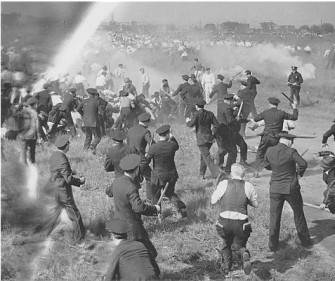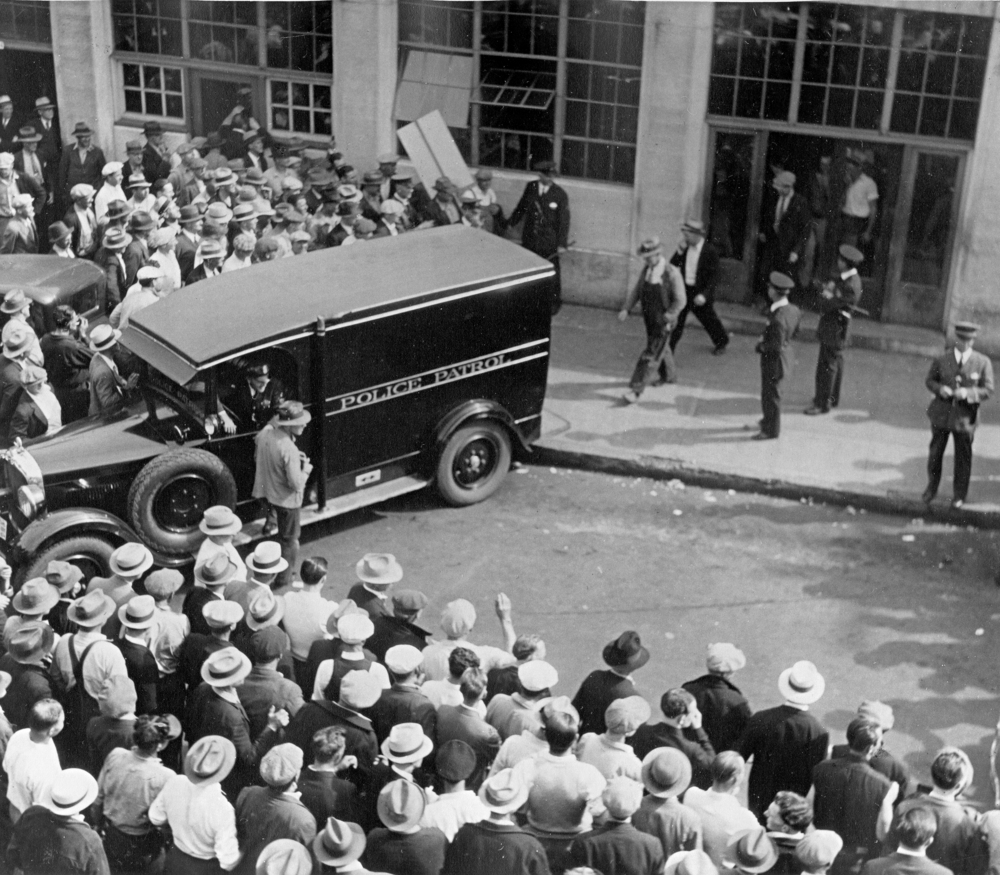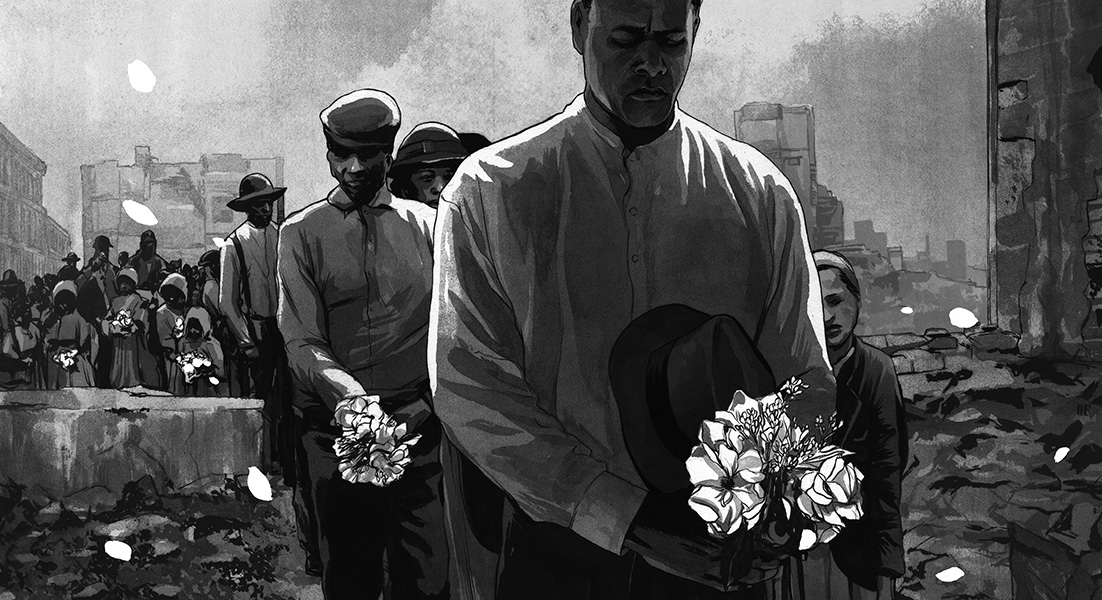 On May 30, 1937, Chicago police attacked a Memorial Day gathering of unarmed, striking steelworkers and their families. The police shot and killed ten of the strikers. Read an essay below by renowned author Howard Fast and see the documentary Memorial Day Massacre: Workers Die, Film Buried on PBS.
On May 30, 1937, Chicago police attacked a Memorial Day gathering of unarmed, striking steelworkers and their families. The police shot and killed ten of the strikers. Read an essay below by renowned author Howard Fast and see the documentary Memorial Day Massacre: Workers Die, Film Buried on PBS.
By Howard Fast
Memorial Day in Chicago in 1937 was hot, humid, and sunny; it was the right kind of day for the parade and the holiday, the kind of a day that takes the soreness out of a Civil War veteran’s back, makes him feel like stepping out with the youngsters a quarter his age. It was a day for picnics, for boating, for the beach or a long ride into the country. . . Most of the strikers felt good.
Tom Girdler, who ran Republic, had said that he would go back to hoeing potatoes before he met the strikers’ demands, and word went around that old Tom could do worse than earn an honest living hoeing potatoes. The strike was less than a week old; the strikers had not yet felt the pinch of hunger, and there was a good sense of solidarity everywhere.
Because it was such a fine summer day, many of the strikers brought their children out onto the prairie to attend the first big mass meeting; and wherever you looked, you saw two-year-olds and three-year-olds riding pick-a-back on the shoulders of steelworkers.
Continue reading Fast’s full Memorial Day Massacre essay.
New Documentary
Memorial Day Massacre: Workers Die, Film Buried
Check out the documentary and companion oral history collection, Memorial Day Massacre: Workers Die, Film Buried about the 1937 Memorial Day Massacre.
Learn about the book and film in this Democracy Now! segment.
It was a time like today, when unions were growing stronger. The workers were on strike against Republic Steel, and the police attacked them with weapons supplied by the company. The tragic story is told in a new PBS documentary. “The mass media, right up to The New York Times, was supporting the police story that they had no choice but to open fire on this mob,” says Greg Mitchell, who directed the PBS documentary, Memorial Day Massacre: Workers Die, Film Buried, and edited a companion book that is the first oral history on the tragedy. The film was produced by Lyn Goldfarb.
Watch the DN! clip below.
Film Clips
Chicago Memorial Day Massascre, Part I
The police brutality was captured on film.










Twitter
Google plus
LinkedIn